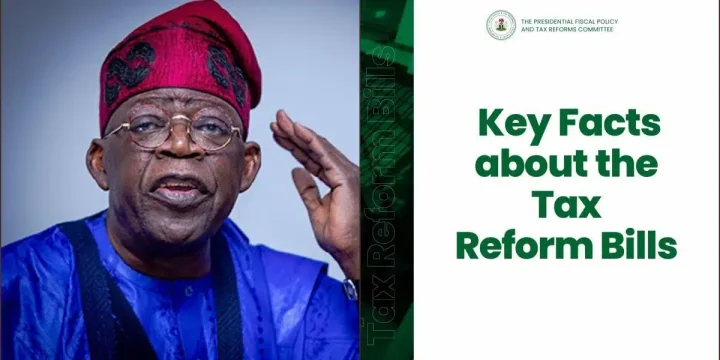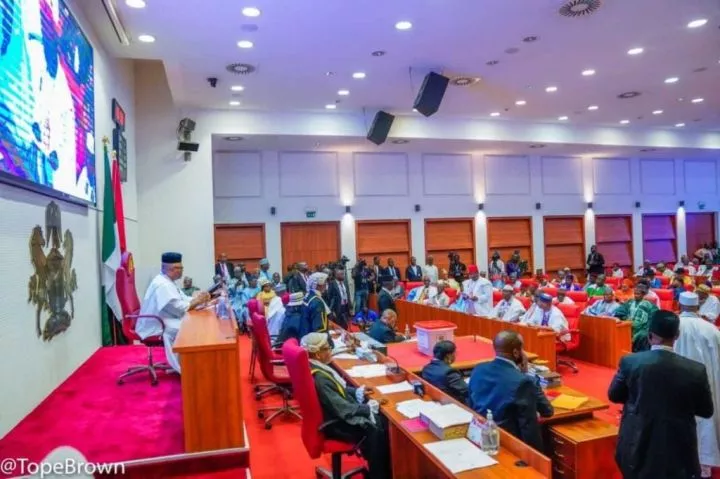
At the backdrop of the pressures from the organized labour, there are indications that the Federal Government, FG, would rely on borrowing to implement its plan to increase salary for federal workers in 2024.
This indication emanates from details in the Budget Office of Federation, BOF, notes on the 2024 FG budget where it attributed the rising deficit to three key factors including salary review among others.
It stated, ''The high projected level of fiscal deficit in 2024 is partly attributable to the proposed salary review of Federal workers across board.''
The estimated deficit amounting to N9.3 trillion, according to BOF would be funded by both domestic and external borrowing.
The other two key drivers of deficit in 2024 are increased pension obligations and higher debt service cost.
The planned FG deficit represents about 50% of total FGN revenues, but analysts project a higher proportion given the current revenue constraints as well as actual performance in 2023.
Meanwhile, at 3.88% of Gross Domestic Product, GDP, the projected level of deficit has breached the threshold stipulated in the Fiscal Responsibility Act (FRA).
An official of the BOF told Vanguard that the FG is relying on a provision of a section of the FRA which allows government to exceed the 3.0% of GDP threshold stipulated by FRA if justified by threats to national security.
In its medium term expenditure plan the FG plans a steady rise in deficit with 2025 put at N10.2 trillion while 2026 is put at N11.5 trillion.
Similarly, its borrowings is set on a steady increase from N6.3 trillion in 2023 to N7.8 trillion projected in 2024, rising to N8.5 trillion in 2025 and N10.1 trillion in 2026.
Consequently, debt service expenditure is set to be on steady rise from N6.3 trillion in 2023 to N8.2 trillion in 2024 and N10.1 in 2025 before hitting N11.6 trillion in 2026.
As a result of the increasing borrowing in medium term, the proportion of government's revenue being utilized for debt servicing which is set to decline to 45% in 2024 from 57% in 2023, would reverse in 2025 rising to 58% and recording a further rise to 65% in 2026.
Details of the capital expenditure show a worrisome development where, not only that it lags behind expenditure on debt servicing, it also shows that after a marginal increase in 2024, it will begin to decline significantly in 2025 into 2026.
The capital expenditure as a percentage of non-debt expenditure would stay flat at 46% in 2024, same as 2023, but drops to 42% in 2025 and 2026.
The situation becomes worse when capital expenditure is seen as a percentage of total expenditure which shows a steady decline from 34% in 2023 to 32% in 2024, down to 27% in 2025 and further down to 25% in 2026.
Analysts express worry
With the rising borrowing coming as a result of rising recurrent expenditure and at same time declining capital expenditure, analysts have expressed concern that the fiscal plan is not properly aligned.
Analysts at BudgIT, a fiscal policy monitoring outfit, have indicated the need for the budget to be realigned in favour of capital expenditure with strong infrastructure content to stimulate economic development.
Vahyala Kwaga, Senior Researcher and Policy Analyst, BudgIT, stated: ''Nigeria's infrastructure and human development needs cannot be addressed by anything less than successive fiscal years of significant spending. The federal budget has had a growing recurrent expenditure profile but, interestingly, a (relatively) static capital expenditure profile within the past eight years.
''Hence, it is difficult to understand whether the federal government intends to address urgent issues of poor service delivery and sub-optimal infrastructure relative to the nation's population.
''It stands to reason that the country's population growth rate has not abated and, as such, has not been met with concerted spending.
''BudgIT and the World Bank have written and provided analysis elsewhere about the growth in recurrent debt (and, to a large extent, recurrent non-debt expenditure), over and above the spending on capital expenditure.
''The administration of Bola Tinubu must ensure that the budget is drawn up with the interest of the people in mind by giving additional priority to capital expenditure; Ensure accurate and consistent projections on what the federal government has the capacity to earn as revenue and spend to implement its planned program of activities.
Our fiscal constraints - FG
Explaining the constraints to the budget in its post-budget statements posted on its website, the BOF said, ''The draft 2024 budget has been prepared against the backdrop of continuing global and domestic challenges.
''Overall, fiscal risks have increased, following weaker-than-expected domestic economic performance and structural issues in the domestic economy.
''Revenue generation remains the major fiscal constraint to Nigeria's fiscal viability.
''However, government is reviewing current tax and fiscal policies with a view to improving revenue generation.
''The target is to increase the ratio of revenue to GDP from less than 10% currently to 18% within the current term of this Administration.
''Efforts will, however, focus on improving tax administration and collection efficiency.
''Government will make effort to further contain financial leakages through effective implementation of key public finance management reforms. ''The goal of fiscal interventions will be to further stimulate the economy through carefully calibrated regulatory/policy measures designed to boost domestic value-addition, de-risk the enterprise environment, attract external investment and sources of funding, etc.
''Government remains mindful of the need to provide safety nets to cushion the impact of reform measures on the vulnerable segments of the population.
''Early passage of the Budget for implementation from January 1 will significantly contribute towards achievement of government macro-fiscal and sectoral objectives.''

















Comments